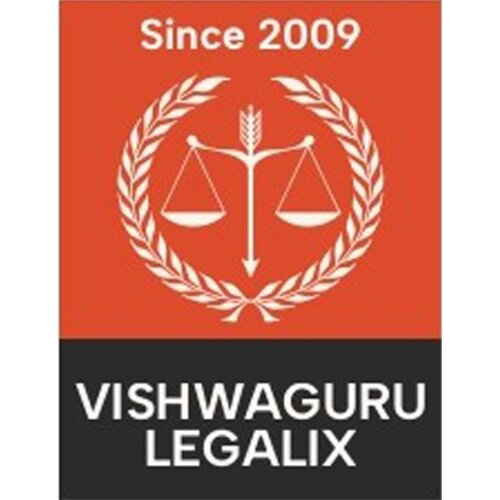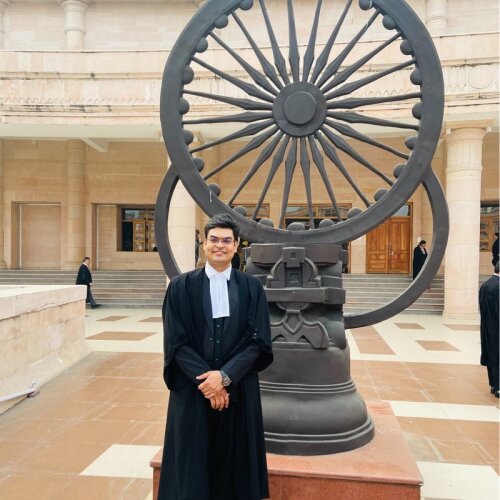Best Adoption Lawyers in Lucknow
Share your needs with us, get contacted by law firms.
Free. Takes 2 min.
Free Guide to Hiring a Family Lawyer
List of the best lawyers in Lucknow, India
About Adoption Law in Lucknow, India:
Adoption in Lucknow, and generally across India, is mainly guided by the Hindu Adoption and Maintenance Act, 1956 and the Juvenile Justice (Care and Protection) Act, 2015. All adoptions need to be processed through the Central Adoption Resource Authority (CARA), a statutory body of the Ministry of Women & Child Development. In India, adoption is a legal process where the rights, privileges, and responsibilities of a biological parent are legally assigned to the adopting parents. The process seeks to prioritize child safety and well-being at all times.
Why You May Need a Lawyer:
Adoption involves complex legal procedures, and every step needs to be taken very carefully to prevent any legal issues down the line. You may need a lawyer to understand the legal paperwork, to ensure proper compliance with all the government rules and regulations, to negotiate with birth parents or adoption agencies, or to represent you during court proceedings in case of adoption disputes.
Local Laws Overview:
As per the laws in Lucknow, Indian citizens, Non-Resident Indians (NRIs), and even foreigners can adopt a child. The process is facilitated through CARA. Prospective parents must be physically, mentally, and financially stable and without any life-threatening medical conditions. Age, marital status, and gender also play integral roles in adoption. For example, a single male is not eligible to adopt a girl child. Additionally, there must be at least 21 years of age difference between the child and either of the adopting parents.
Frequently Asked Questions:
1. Who can adopt a child in Lucknow, India?
Any Indian citizen, NRI, or foreigner who meets all the legal requirements for adoption and passes the Home Study Report can adopt a child in India. This includes singles and married couples.
2. Are there any restrictions on who can be adopted?
Yes, only orphans, abandoned and surrendered children can be adopted in India. The child must be legally free for adoption and this needs to be certified by the Child Welfare Committee.
3. What is the role of CARA in adoption?
CARA is the central authority for adoption in India. It sets the guidelines for adoption and monitors their implementation.
4. How long does the adoption process take?
Getting a child for adoption can take anywhere between few months to a few years, depending on the preferences of the prospective parents and availability of children.
5. Can biological parents reclaim their child after adoption?
No, once the adoption is legally completed, the biological parents lose all parental rights and cannot reclaim the child.
Additional Resources:
For more information, you can explore the websites of CARA and Ministry of Women & Child Development. Additionally, local NGOs and adoption agencies in Lucknow can provide valuable insights and support during the adoption process.
Next Steps:
If you need legal assistance in the field of Adoption, it's recommended to hire a lawyer who specializes in this area. You can approach the State Legal Services Authority, Lucknow Bar Association, or legal aid NGOs for assistance in finding a suitable lawyer. Also, always ensure that the adoption procedure is pursued only through legal and ethical channels to protect the rights of all parties involved.
Lawzana helps you find the best lawyers and law firms in Lucknow through a curated and pre-screened list of qualified legal professionals. Our platform offers rankings and detailed profiles of attorneys and law firms, allowing you to compare based on practice areas, including Adoption, experience, and client feedback.
Each profile includes a description of the firm's areas of practice, client reviews, team members and partners, year of establishment, spoken languages, office locations, contact information, social media presence, and any published articles or resources. Most firms on our platform speak English and are experienced in both local and international legal matters.
Get a quote from top-rated law firms in Lucknow, India — quickly, securely, and without unnecessary hassle.
Disclaimer:
The information provided on this page is for general informational purposes only and does not constitute legal advice. While we strive to ensure the accuracy and relevance of the content, legal information may change over time, and interpretations of the law can vary. You should always consult with a qualified legal professional for advice specific to your situation.
We disclaim all liability for actions taken or not taken based on the content of this page. If you believe any information is incorrect or outdated, please contact us, and we will review and update it where appropriate.
















